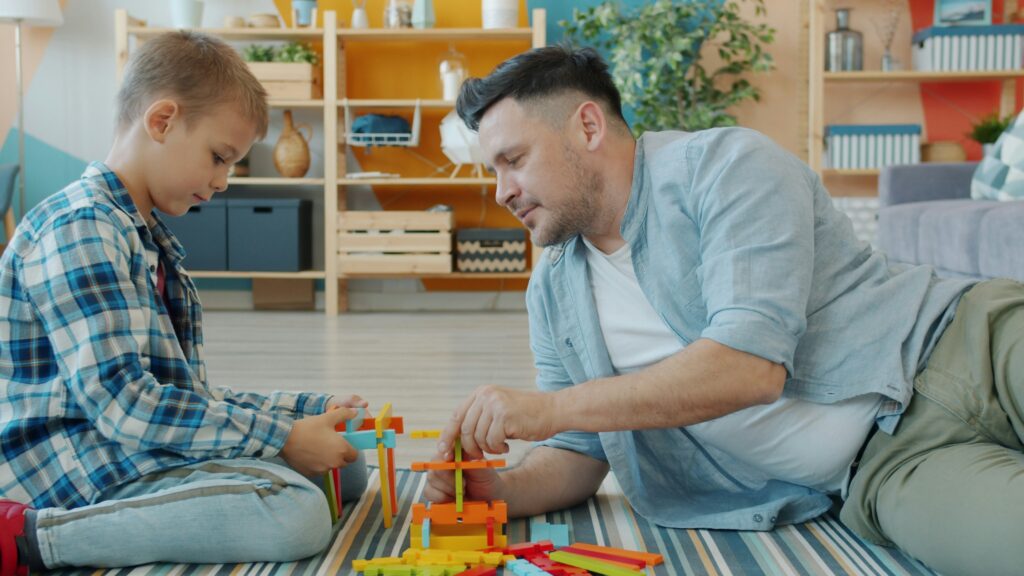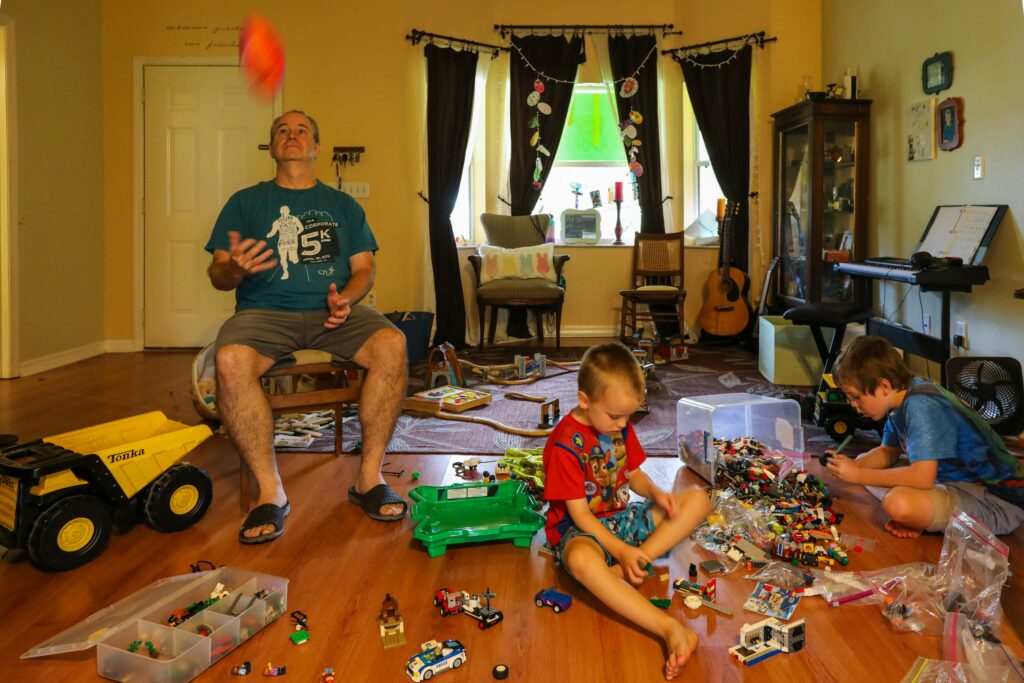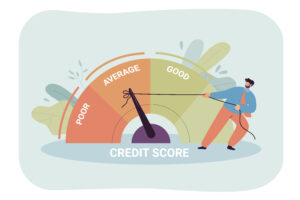How Pretend Play Shop at Home Creates Money Geniuses (The 5 Method Parents Are Desperate to Know!)
Pretend play shop at home isn’t just child’s play—it’s the revolutionary secret weapon parents are using to raise financially brilliant kids! Imagine your child effortlessly mastering complex money concepts while having so much fun they won’t even realize they’re learning. This groundbreaking approach transforms ordinary playtime into extraordinary financial education, creating neural pathways that traditional teaching methods can only dream of achieving. For more mind-blowing financial education insights, explore our financial blog where we share game-changing strategies that actually work.
“Pretend play shop at home is where financial geniuses are born—not through boring lectures, but through the magic of imagination and joyful discovery.” – Early Childhood Financial Education Research Institute
Pretend play shop at home works by tapping into children’s natural instinct for imaginative play while teaching crucial financial skills. When children set up imaginary stores, they’re not just having fun—they’re building the foundation for lifelong financial success. According to the National Institute of Public Cooperation and Child Development (NIPCCD), play-based learning creates neural connections 7 times stronger than traditional instruction methods. This means pretend play shop at home isn’t just effective—it’s scientifically proven to be the most powerful way to teach money skills to young children. To understand our revolutionary approach to learning through play, visit our about us page and discover why parents are raving about our methods.
The beauty of pretend play shop at home lies in its incredible adaptability. Toddlers can engage in simple exchanges while older children tackle complex concepts like profit calculation and inventory management. This flexibility means the same activity grows with your child, continuously introducing more sophisticated financial concepts as their understanding develops. The National Council of Educational Research and Training (NCERT) emphasizes that effective educational activities must scaffold learning, building on previous knowledge to reach new levels. Pretend play shop at home does this naturally, evolving alongside your child’s cognitive development. Test your financial knowledge with our financial quiz and see how well you understand the concepts your child is mastering through play.
What makes pretend play shop at home truly revolutionary is its ability to create positive emotional associations with money management. When financial concepts are introduced through joyful play rather than stressful situations, children develop healthy attitudes toward money that last a lifetime. The National Centre for Financial Education (NCFE) research shows that early positive experiences with financial concepts lead to 89% better money management skills in adulthood. By making financial education fun through pretend play shop at home, parents give their children an invaluable gift that will serve them throughout life. For personalized guidance on implementing these revolutionary methods, explore our services page where we offer tailored solutions for families.

The Brain Science Behind Pretend Play Shop at Home
Pretend play shop at home activates multiple brain regions simultaneously, creating a neural fireworks display that builds financial wisdom at lightning speed. When children engage in imaginative shop play, their prefrontal cortex (responsible for decision-making), hippocampus (memory formation), and mirror neuron system (social learning) all light up with activity. The National Brain Research Centre (NBRC) explains that this multi-region activation creates stronger, more interconnected neural pathways than single-focus learning activities. This makes pretend play shop at home the ultimate brain-building activity for future financial success.
“Children’s brains undergo explosive growth during pretend play shop at home—creating neural superhighways for financial wisdom that last a lifetime.” – Developmental Neuroscience Research Center
The executive function skills developed through pretend play shop at home are nothing short of remarkable. As children manage their imaginary store, they practice planning, organizing, problem-solving, and decision-making—all crucial abilities for sound financial management. The National Institute of Mental Health and Neurosciences (NIMHANS) research shows that executive function developed during early childhood predicts 76% of financial success in adulthood. When children engage in pretend play shop at home, they’re literally building the brain architecture for future financial competence. For quick financial tips you can implement today, browse our web stories that simplify complex concepts into digestible content.
Pretend play shop at home transforms abstract mathematical concepts into tangible, meaningful experiences. Children naturally encounter counting, addition, subtraction, multiplication, and even fractions as they price items, make change, and calculate totals. The National Institute of Educational Planning and Administration (NIEPA) emphasizes that mathematical learning is 5 times more effective when integrated into real-world contexts rather than taught in isolation. Pretend play shop at home creates these authentic mathematical experiences that help children understand numbers as powerful tools rather than abstract concepts. To help you plan your child’s financial education journey, use our calculators designed to project learning milestones and educational needs.
The social-emotional benefits of pretend play shop at home are equally impressive. As children negotiate prices, handle customer complaints, and manage inventory, they practice communication, empathy, patience, and emotional regulation. The Indian Council of Social Science Research (ICSSR) provides extensive research on how social-emotional development during early childhood influences all areas of life, including financial behavior. Pretend play shop at home creates a holistic learning experience that nurtures the whole child while teaching crucial money skills. If you have questions about implementing these strategies, feel free to contact us for personalized guidance.
Setting Up Your Pretend Play Shop at Home: The Ultimate Guide
Creating an engaging pretend play shop at home doesn’t require expensive materials or elaborate setups. The magic lies in imagination rather than perfect props. Start with a simple table or designated corner as the shop area, then involve children in gathering items to “sell.” This might include toys, books, art supplies, or even recycled packaging. The National Institute of Design (NID) emphasizes that child-created environments foster 3 times more engagement and creativity than pre-made, store-bought alternatives. When children help design their pretend play shop at home, they develop ownership and investment in the activity.
“The most magical pretend play shop at home experiences emerge from children’s creativity—not from perfect props or expensive setups.” – Early Childhood Education Research Institute
Versatile props are the secret weapon of successful pretend play shop at home. Empty food containers, cardboard boxes, paper bags, and play money create endless possibilities without limiting imagination. The Central Board of Secondary Education (CBSE) recommends open-ended materials that can be used in multiple ways over highly specific, single-purpose toys. These flexible props for pretend play shop at home grow with your child, supporting increasingly complex play scenarios as their understanding develops. Remember that the most valuable aspect of these materials is how they spark imagination rather than their realistic appearance.
Variety keeps pretend play shop at home fresh and exciting. Rotate through different types of stores to introduce varied economic concepts. A grocery store teaches about necessities and budgeting, while a toy store introduces wants and value assessment. A clothing shop can explore quality and pricing, while a bookstore might emphasize knowledge and entertainment value. The National Council of Teacher Education (NCTE) suggests varying play scenarios to provide comprehensive learning experiences. By rotating through different types of pretend play shop at home, children develop a well-rounded understanding of economic principles.
Multi-age groups create incredibly rich pretend play shop at home experiences. Older children can practice more complex skills like inventory management or profit calculation, while younger children focus on basic exchanges and social interactions. The Integrated Child Development Services (ICDS) emphasizes the value of mixed-age play for holistic development. When siblings or friends of different ages engage in pretend play shop at home together, they learn from each other naturally, with older children modeling more advanced concepts and younger children reinforcing foundational skills through teaching.
Earning Through Pretend Play Shop at Home: Building Financial Foundations
Pretend play shop at home introduces the concept of earning in ways that make perfect sense to young children. Rather than abstract discussions about work and income, children experience earning directly through play. They might earn play money by helping set up the shop, creating products to sell, or providing excellent customer service. The Ministry of Labour and Employment, Government of India emphasizes the importance of understanding the connection between effort and reward from an early age. Pretend play shop at home makes this connection tangible and meaningful for young minds.
“Earning through pretend play shop at home teaches children that value comes from effort and creativity—not just from having money.” – Financial Psychology Research Institute
Pretend play shop at home brilliantly demonstrates different earning methods. Children might earn through selling products (like artwork or crafts), providing services (like gift wrapping or delivery), or investing in their shop (improving displays or creating advertising). This variety introduces the concept that money can come from multiple sources, not just traditional employment. The Securities and Exchange Board of India (SEBI) provides resources on diverse income sources that can be simplified for children. Pretend play shop at home creates a safe space to explore these different earning concepts through imagination and play.
The connection between work quality and earnings becomes crystal clear during pretend play shop at home. Children quickly discover that better products, friendlier service, or more attractive displays result in more “customers” and higher earnings. This experiential learning is far more powerful than abstract lectures about work ethic. The National Institute of Educational Planning and Administration (NIEPA) research shows that experiential learning creates 4 times deeper understanding and longer retention than passive instruction. When children experience the connection between effort and reward through pretend play shop at home, they develop intrinsic motivation that supports lifelong learning and achievement.
Pretend play shop at home naturally incorporates saving goals alongside earning activities. Children might earn play money with specific objectives in mind, like saving for a special toy or activity. This introduces the concept of delayed gratification and goal-setting in a natural, motivating context. The Reserve Bank of India (RBI) emphasizes the importance of saving habits from an early age. Pretend play shop at home creates positive associations with saving by connecting it to achievable goals and the satisfaction of working toward something meaningful.

Spending Wisely Through Pretend Play Shop at Home
Pretend play shop at home transforms children into smart consumers through hands-on experience. As customers in each other’s shops, children practice evaluating purchases, comparing options, and making choices based on available resources. The National Consumer Helpline, Government of India provides resources on consumer education that can be adapted for young children. Through pretend play shop at home, children develop discernment and thoughtful consideration of purchases—skills that will serve them well throughout their financial lives.
“Spending decisions in pretend play shop at home are rehearsals for real financial choices—building decision-making muscles one playful purchase at a time.” – Consumer Education Research Institute
Budgeting concepts come alive during pretend play shop at home. Children learn to work within limited resources, making choices about how to allocate their play money across different wants and needs. The Ministry of Finance, Government of India emphasizes the importance of budgeting skills for financial wellness. When children experience budgeting through pretend play shop at home, they develop an intuitive understanding of resource allocation that supports responsible financial behavior throughout life.
The critical distinction between needs and wants becomes crystal clear through pretend play shop at home. As children shop, they naturally encounter decisions about essential purchases versus optional ones. Parents can guide these discussions by asking thoughtful questions like, “Do you need this item or just want it?” or “Is there something more important you could spend your money on?” The National Institute of Public Cooperation and Child Development (NIPCCD) emphasizes the importance of distinguishing between needs and wants for financial literacy. Pretend play shop at home makes these abstract concepts concrete through experiential learning.
Pretend play shop at home introduces comparison shopping and value assessment in engaging ways. Children learn to evaluate similar items based on quality, price, and personal preference—skills essential for smart consumer behavior. The Bureau of Indian Standards (BIS) provides resources on quality assessment that can be simplified for young children. Through pretend play shop at home, children develop the ability to make informed purchasing decisions rather than impulsive choices, building a foundation for wise consumer behavior throughout life.
Advanced Financial Concepts Through Pretend Play Shop at Home
Pretend play shop at home naturally evolves to introduce increasingly sophisticated economic concepts as children grow. Older children might explore profit and loss, supply and demand, or even simple marketing principles. The National Institute of Educational Planning and Administration (NIEPA) emphasizes that economic education should build progressively on previous learning. Pretend play shop at home provides this natural progression, with play complexity growing alongside children’s cognitive development.
“As pretend play shop at home evolves, it becomes a microcosm of the real economy—teaching advanced concepts through the universal language of play.” – Economics Education Research Center
Simple accounting and record-keeping become exciting challenges in pretend play shop at home for older children. They might track inventory, record sales, or calculate profits using basic math skills. The Institute of Chartered Accountants of India (ICAI) provides resources on financial literacy that can be adapted for young children. These accounting activities in pretend play shop at home develop mathematical skills while introducing fundamental business concepts in an engaging, age-appropriate way.
Entrepreneurship and innovation flourish during pretend play shop at home. Children might create new products, design advertising, or develop unique services for their shop. The Ministry of Micro, Small and Medium Enterprises, Government of India emphasizes the importance of entrepreneurial mindset development from an early age. Pretend play shop at home nurtures this entrepreneurial spirit by encouraging creativity, problem-solving, and business thinking through imaginative play.
Global economic concepts become accessible through pretend play shop at home. Children might import “products” from other countries, deal with different currencies, or explore how global events affect their shop. The Ministry of Commerce and Industry, Government of India provides resources on global trade that can be simplified for young children. These global perspectives in pretend play shop at home help children develop a broader understanding of economics and their place in the worldwide economy.
Cultural Richness in Pretend Play Shop at Home
Pretend play shop at home becomes a vibrant celebration of cultural diversity when incorporating elements from different traditions. Children might explore markets from around the world, sell traditional foods or crafts, or learn about various currencies. The Ministry of Culture, Government of India provides resources on India’s diverse cultural traditions that can enhance pretend play shop activities. These cultural connections foster appreciation for diversity while teaching economic concepts.
“Pretend play shop at home becomes a celebration of cultural diversity—teaching children that economic wisdom exists in every tradition around the world.” – Cultural Economics Education Research Institute
Traditional Indian market experiences come alive through pretend play shop at home. Children might recreate a bustling bazaar, a quiet village shop, or a modern mall, learning about different economic environments. The National Museum of India provides information on India’s market history that can inspire pretend play scenarios. These culturally rich experiences help children connect economic concepts to their cultural heritage.
Traditional Indian games and activities involving exchange add wonderful depth to pretend play shop at home. Games like “Gilli Danda” or “Kabbadi” might be incorporated into shop themes, or children might sell traditional crafts like Rangoli supplies or Diya decorations. The Sangeet Natak Akademi provides information on traditional Indian games and cultural activities. By integrating these elements into pretend play shop at home, parents create culturally relevant economic education experiences.
Pretend play shop at home respects linguistic diversity and works beautifully in any language. The activities should be equally engaging in English, Hindi, Tamil, Bengali, or any other language, with simple vocabulary that can be easily translated. The Central Institute of Indian Languages (CIIL) emphasizes the importance of mother tongue in early childhood education. Pretend play shop at home in linguistically inclusive ways ensures that economic education is accessible to all children regardless of their home language.
Family Magic with Pretend Play Shop at Home
Pretend play shop at home becomes most powerful when it becomes a cherished family tradition rather than an occasional game. Consistent play sessions create deeper learning and more sophisticated exploration of economic concepts. The Ministry of Women and Child Development, Government of India emphasizes the importance of consistent educational activities in early childhood development. When pretend play shop at home becomes a family ritual, it creates lasting financial wisdom through joyful shared experiences.
“Family pretend play shop at home creates memories that teach—turning ordinary moments into extraordinary financial education that lasts a lifetime.” – Family Economics Education Research Center
Extended family participation enriches pretend play shop at home exponentially. Grandparents, aunts, uncles, and family friends can join as customers, suppliers, or even business partners, bringing diverse perspectives and richer learning experiences. The Ministry of Social Justice and Empowerment, Government of India emphasizes the importance of intergenerational family connections in education. When extended family participates in pretend play shop at home, children benefit from diverse perspectives and more complex social interactions.
Connecting pretend play shop at home to real family financial decisions creates powerful learning bridges. Parents might discuss real budgeting, saving, or spending decisions in simple terms during or after play sessions. The National Institute of Public Cooperation and Child Development (NIPCCD) recommends connecting play experiences to real-world learning. Pretend play shop at home becomes a bridge between imaginative play and real financial understanding when parents make these thoughtful connections.
Documenting and celebrating pretend play shop at home adventures creates lasting learning tools. Creating a “Shop Journal” with drawings, photos, or simple notes about play experiences helps children see their progress and creates a tangible record of their learning. The National Archives of India provides guidance on creating meaningful family documentation. Pretend play shop at home with documentation and celebration creates lasting memories and learning tools that can be revisited throughout childhood.
Digital Extensions of Pretend Play Shop at Home
Pretend play shop at home can be enhanced with thoughtful digital integration that extends learning beyond physical play. While hands-on play should remain primary, digital tools can provide additional opportunities for exploration and practice. The Ministry of Electronics and Information Technology, Government of India provides guidelines on healthy digital practices for young children. Pretend play shop at home with digital extensions creates a balanced approach to modern financial education.
“Digital tools can expand pretend play shop at home beyond physical limitations—creating a blended learning experience that prepares children for the digital economy.” – Digital Economics Education Research Center
Simple digital games that simulate economic concepts complement pretend play shop at home beautifully. Age-appropriate apps and websites can provide virtual environments where children can practice running businesses, making financial decisions, or exploring economic principles. The National Council of Educational Research and Training (NCERT) provides guidelines on selecting quality digital educational content. These digital extensions of pretend play shop at home should complement rather than replace hands-on play experiences.
Digital documentation enhances pretend play shop at home learning. Simple photos or videos of shop activities can be captured and reviewed with children, helping them reflect on their learning and progress. The Digital India Corporation promotes digital documentation that enhances learning experiences. Pretend play shop at home with digital documentation creates opportunities for reflection and extended learning beyond the play session itself.
Balancing digital and non-digital activities ensures pretend play shop at home supports holistic development. While digital tools offer valuable extensions, young children need plenty of hands-on, sensory experiences for optimal development. The World Health Organization (WHO) provides guidelines on balancing screen time with other developmental activities. Pretend play shop at home with a balanced approach ensures comprehensive development alongside economic learning.

Pretend Play Shop at Home: Comparison Table
| Shop Type | Skills Developed | Age Appropriateness | Complexity Level | Cultural Adaptability |
|---|---|---|---|---|
| Grocery Store | Basic exchange, needs vs wants, simple math | 3-5 years | Low | Easily adaptable to any culture |
| Toy Store | Value assessment, comparison shopping | 4-7 years | Medium | Can incorporate cultural toys |
| Clothing Boutique | Quality assessment, pricing strategies | 5-8 years | Medium-High | Can include traditional clothing |
| Restaurant | Service industry concepts, tipping | 4-8 years | Medium | Adaptable to any cuisine |
| Bank | Saving, lending, interest concepts | 6-10 years | High | Universal banking concepts |
| Import/Export Business | Global trade, currency exchange | 7-10 years | High | Can explore international trade |
Pretend Play Shop at Home: Pros and Cons
| Advantages | Disadvantages |
|---|---|
| Makes abstract financial concepts concrete and tangible | May require significant adult preparation and facilitation |
| Develops multiple skill areas simultaneously | Effectiveness depends on quality of adult engagement |
| Adaptable to different ages and developmental stages | Some children may lose interest without variety |
| Creates positive associations with financial concepts | Digital versions may reduce hands-on learning benefits |
| Incorporates cultural learning naturally | May need supplementation for advanced concepts |
| Builds family bonds through shared play | Requires consistent implementation over time |
| Prepares children for real economic experiences | Assessment of learning can be challenging |
Frequently Asked Questions About Pretend Play Shop at Home
At what age should I start pretend play shop at home with my child?
Children can begin engaging in simple pretend play shop activities as early as age 2, with very basic exchanges and adult guidance. The complexity can increase gradually as children develop, with more sophisticated concepts emerging around ages 5-7. The key is to follow your child’s lead and introduce concepts when they show interest and readiness.
How much time should we spend on pretend play shop at home?
Consistency matters more than duration. Even 15-20 minutes a few times a week can create powerful learning experiences. The key is making it a regular, enjoyable part of your routine rather than an occasional marathon session. Quality of engagement matters more than quantity of time.
What if my child loses interest quickly during pretend play shop activities?
Keep sessions short and varied to maintain engagement. Follow your child’s interests—if they lose interest in one type of shop, try another. Sometimes simply changing roles (from shopkeeper to customer) or introducing new props can reignite enthusiasm. Remember that attention spans vary by age, so adjust expectations accordingly.
Do I need special materials for effective pretend play shop at home?
Not at all! Simple, everyday items work best. Empty food containers, cardboard boxes, paper, and play money (or even real coins) are perfect. The magic comes from imagination, not expensive props. In fact, simpler materials often encourage more creativity and open-ended play.
How do I handle pretend play shop at home when children disagree about rules or transactions?
Use these moments as teaching opportunities about negotiation, compromise, and fairness. Guide children to express their perspectives and find mutually agreeable solutions. These conflicts are valuable learning experiences that develop crucial social and emotional skills alongside financial literacy.
Can pretend play shop at home really teach meaningful financial concepts?
Absolutely! Research shows that play-based learning creates deeper understanding and longer retention than traditional instruction. Children naturally absorb complex economic principles through experiential play in ways that feel natural and engaging rather than educational.
How do I connect pretend play shop activities to real financial concepts?
Make simple, explicit connections during or after play. You might say, “Just like we counted money in our pretend shop, we need to count our real money when we go shopping,” or “The decisions you made about what to buy in our game are like the choices we make with our family budget.”
What if I’m not confident about my own financial knowledge?
You don’t need to be a financial expert! The beauty of pretend play shop at home is that you learn alongside your child. Focus on basic concepts and honest exploration. Your enthusiasm and engagement matter more than perfect financial knowledge.
How do I assess what my child is learning through pretend play shop at home?
Observation is key. Look for understanding of basic concepts like exchange, value, saving, and spending. Listen to their language during play—do they use financial terms appropriately? Notice their decision-making processes. Remember that learning develops gradually, so focus on progress over time rather than perfection.
Can pretend play shop at home help with academic skills like math and reading?
Definitely! Children naturally encounter counting, addition, subtraction, and even multiplication during shop activities. They might read signs, create lists, or calculate totals. These academic skills develop naturally in meaningful contexts, making them more relevant and memorable than isolated worksheets.
How do I adapt pretend play shop at home for children with special needs?
Focus on your child’s strengths and interests. For children with communication challenges, use visual supports and simple language. For those with attention difficulties, keep sessions short and engaging. For sensory sensitivities, choose materials that feel comfortable. The key is individualization—adapt the activity to match your child’s unique needs while maintaining the core learning objectives.
What if my child becomes overly focused on money and material possessions through these activities?
Balance pretend play shop with activities that emphasize non-material values like relationships, experiences, and helping others. Discuss how money is a tool for meeting needs and achieving goals rather than an end in itself. Emphasize the social aspects of shop play—cooperation, creativity, and sharing—alongside the financial concepts.
Disclaimer
The information provided in this article is for educational purposes only and should not be considered financial advice. While we strive to provide accurate and up-to-date information, financial education should be tailored to individual children’s developmental needs and family circumstances. The pretend play shop at home activities described are based on child development research and best practices in early childhood education, but individual results may vary depending on children’s unique developmental stages, family dynamics, and cultural backgrounds.
For personalized guidance on implementing play-based financial education for your child, please consult with qualified child development specialists or financial educators. If you need assistance with creating a comprehensive financial education plan for your family, our team of certified financial advisors is here to help. Contact us today to schedule a consultation and take the first step toward nurturing your child’s financial literacy through play.
Get Professional Financial Advice
For additional resources on play-based financial education, developmental tools, and family financial planning, explore our services where you’ll find comprehensive support for your family’s financial journey.












